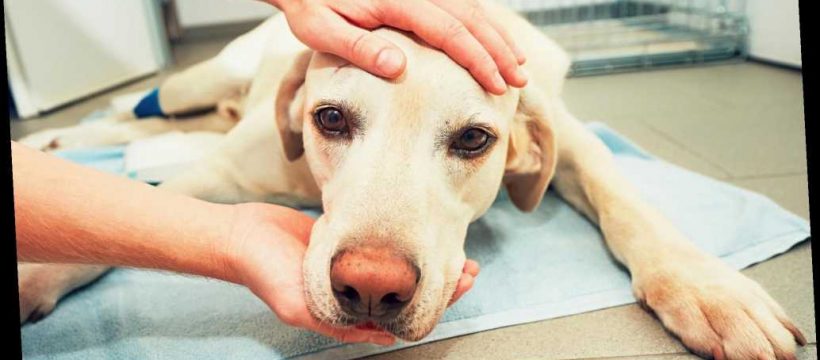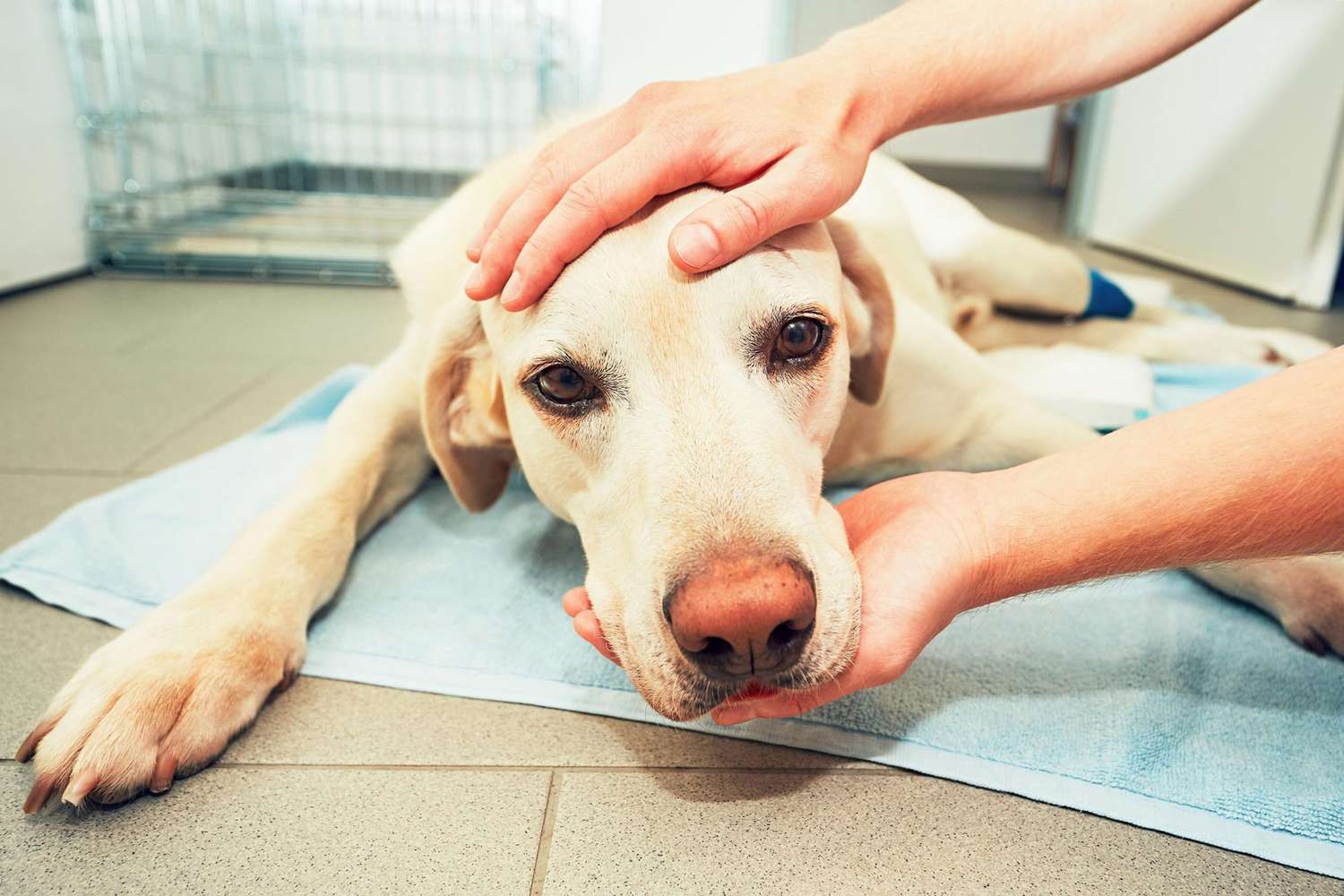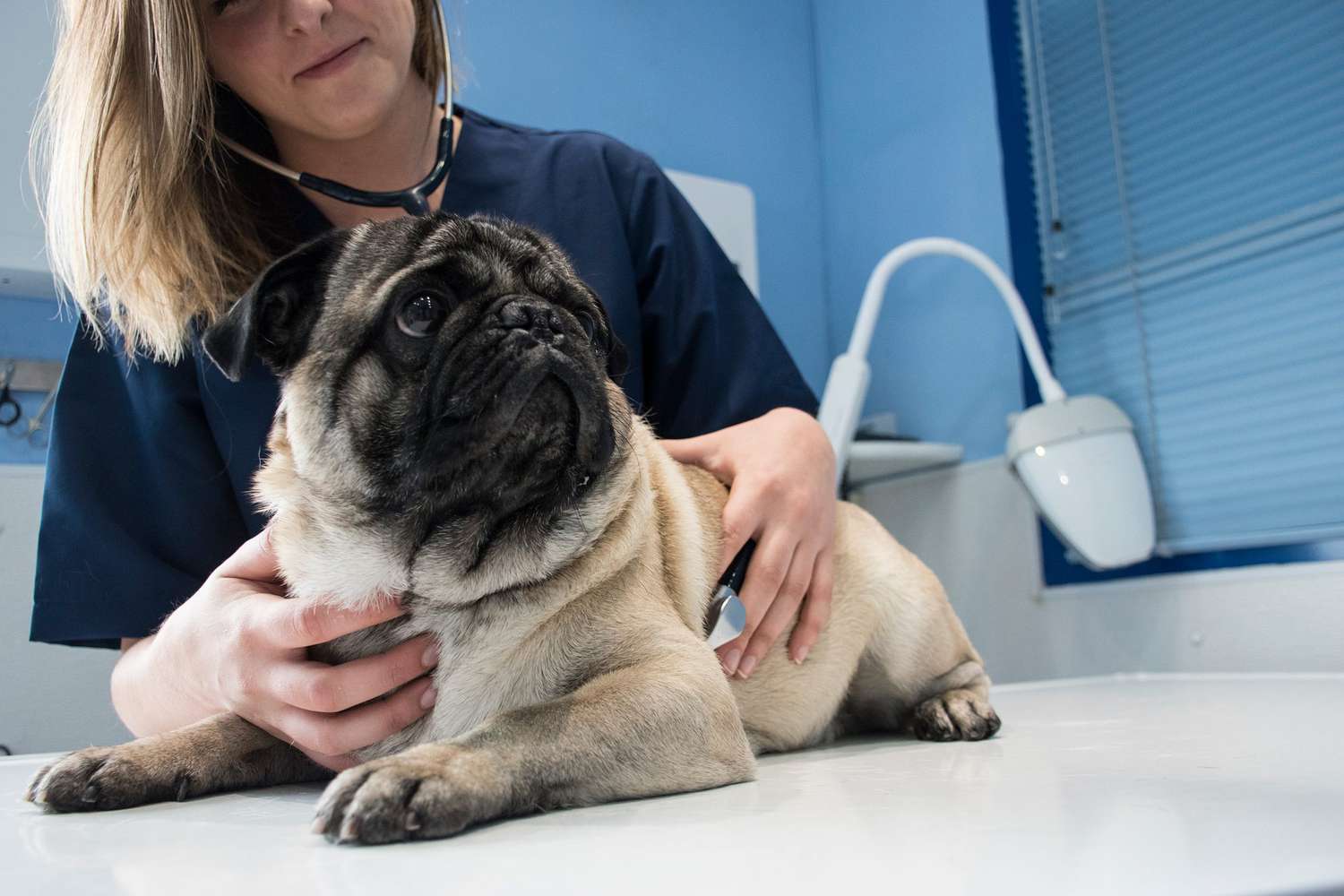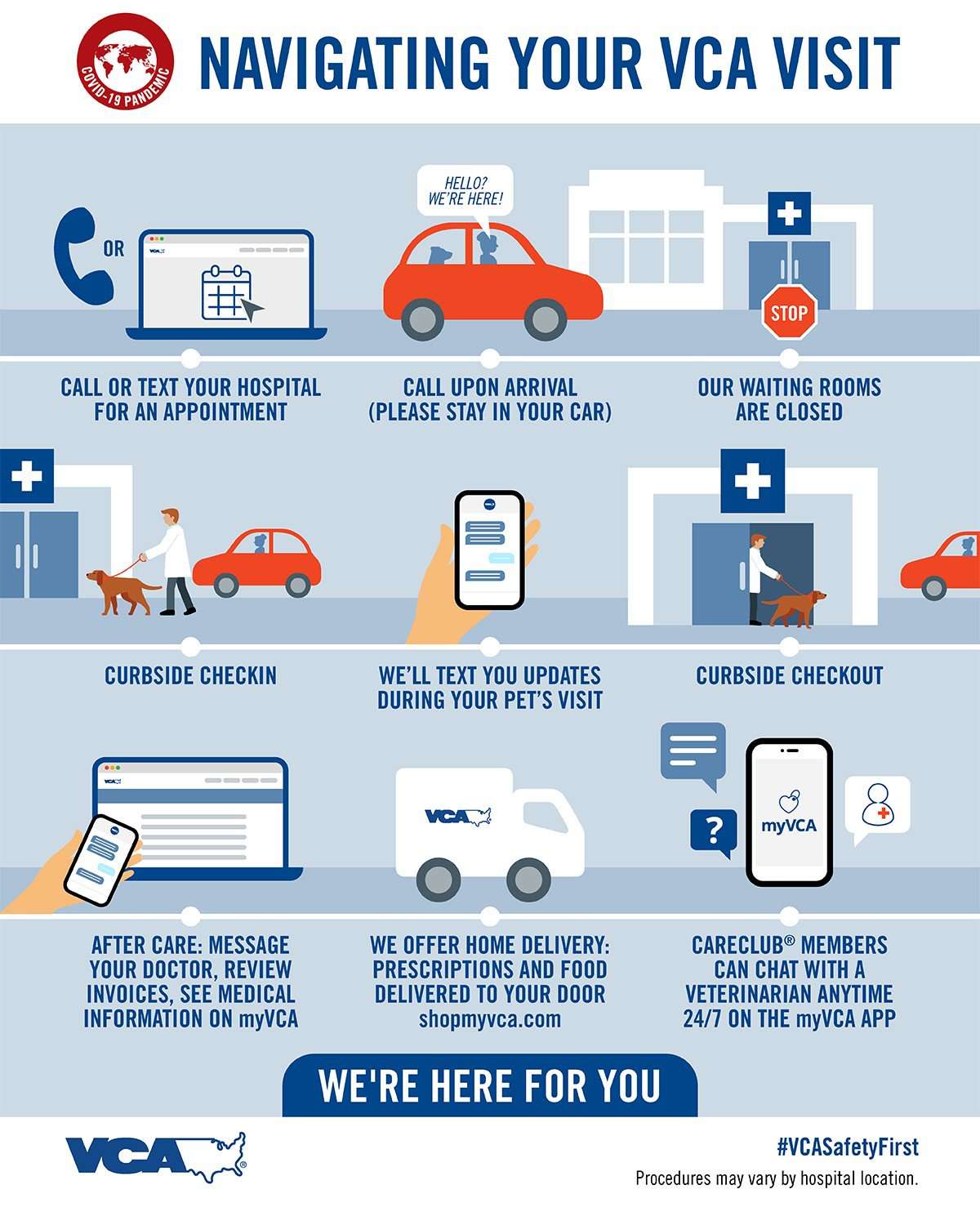What changes can you expect at the vet’s office due to the coronavirus pandemic?
While at VCA we have implemented some new policies in order to keep you and our associates safe, you can rest assured that we will continue to provide top-notch veterinary care. While there may be some slight variation between hospitals, here is what you can expect from your VCA veterinary visit at this time:
1. When you arrive at the hospital, stay in your car. Our waiting rooms and reception areas are closed.
2. Call the hospital or posted phone number in order to be checked-in.
3. An associate will come to your car to take your pet. Please have a mask or face covering on for protection of all. It is also very important that you have a leash for your dog and a secure carrier for your cat or other small pet.
4. Once your pet is inside the hospital, he/she will receive a thorough examination by the doctor.
5. Keep your phone handy! The doctor will call to discuss their findings and may ask you additional questions at this time.
6. Once you and your doctor have decided on the best plan, your pet will receive any needed diagnostic tests or treatments.
7. You will be checked-out and pay for your visit over the phone.
8. Your pet and any take-home items or prescriptions will be brought to your car. Please have your mask or face covering on during this brief interaction.
How are vets keeping pets and their owners safe during vet visits?
COVID-19 is a human disease and the greatest risk of spread is from person to person. Like VCA, many veterinarians are employing curbside check-in and check-out to allow for social distancing between clients and the veterinary healthcare team. Our waiting and reception areas are closed in order to maintain appropriate social distancing and clients are not allowed into our hospitals unless authorized under special circumstances. Veterinary hospitals have rigorous cleaning and disinfection protocols. However, we have increased our high infection and prevention control practices to focus on preventing person-to-person transmission of COVID-19.
What precautions are vets and their assistants taking to protect themselves from COVID-19?
VCA has implemented revised team member workflows inside the hospital to allow for social distancing practices. We have also developed new and additional Personal Protective Equipment (PPE) policies that allow us to provide adequate protection to associates while also responsibly preserving PPE for critical services as well as increased sanitation and cleaning/disinfection procedures during the pandemic. VCA has also increased benefits to enable our associates to take the time they need away from work during the pandemic and are providing employee mental health and wellbeing information and resources during this challenging time.
What should you do if your pet needs help but you think you might have COVID-19?
If you are experiencing flu-like symptoms or are quarantined due to potential coronavirus exposure, stay home and call your medical provider for advice on next steps.
If your pet does not require immediate veterinary care, keep them at home and avoid contact with other people and animals; we are happy to help you reschedule any appointments for your pet until you’re well.
If your pet needs to be seen urgently due to a life-threatening situation or illness:
1. Call to confirm your veterinary clinic is equipped to treat patients that could have been exposed to COVID-19 virus and has adequate isolation facilities and staffing to care for your pet. While there is limited evidence that pets can be infected and no evidence that domestic dogs and cats pose a risk to others, this is purely a precaution because the virus is not well-understood.
2. If your veterinary clinic is unable to provide full isolation and associated care for your pet, ask for a referral to the nearest veterinary clinic with ICU or isolation capacity.
3. Arrange for an unexposed/non-quarantined friend or family member to transport your pet to and from the veterinary clinic to limit potential exposure.
Are vets still able to treat most medical conditions in pets? Are there restrictions and/or supply shortages?
The American Veterinary Medical Association (AVMA) reports that, as of April 12, 2020, “no current shortages are reported by any of the 32 animal drug companies that make finished drugs or source active pharmaceutical ingredients in China for the U.S. market, according to the U.S. Food and Drug Administration (FDA).” VCA continues to provide veterinary care for our patients and is following the Centers for Disease Control and Prevention’s (CDC) guidelines in order to protect our associates while also responsibly preserving PPE for critical services.
Are there any pet health issues you have seen on the rise due to them spending so much time indoors with their owners?
Our pets don’t know that COVID-19 is happening. In general, they are just happy to have their people around more. However, we have received many questions from clients about their pets’ behavior in light of working from home, sheltering in place, and just spending more time in each other’s presence. We have some great resources on COVID-19 and pet behavior on our AskVCA Youtube channel and the VCA Animal Hospitals Facebook page.
Is there anything else you would like pet owners to know, based on questions and concerns you are seeing at this time?
COVID-19 is a newly emerging disease, and the situation is still evolving. We are learning more about the disease COVID-19 and the SARS-CoV-2 virus every day and we are constantly assessing and evolving our practices in order to provide continued care for pets while at the same time, protecting our associates and clients alike.
As information about the coronavirus pandemic rapidly changes, PEOPLE is committed to providing the most recent data in our coverage. Some of the information in this story may have changed after publication. For the latest on COVID-19, readers are encouraged to use online resources from CDC, WHO, and local public health departments. PEOPLE has partnered with GoFundMe to raise money for the COVID-19 Relief Fund, a GoFundMe.org fundraiser to support everything from frontline responders to families in need, as well as organizations helping communities. For more information or to donate, click here.
Source: Read Full Article



